Ready to Embark on an Exciting Journey with WIN?
Take the first step toward personal and financial freedom by filling out the interest form. One of our franchise advocates will be in touch with you soon!
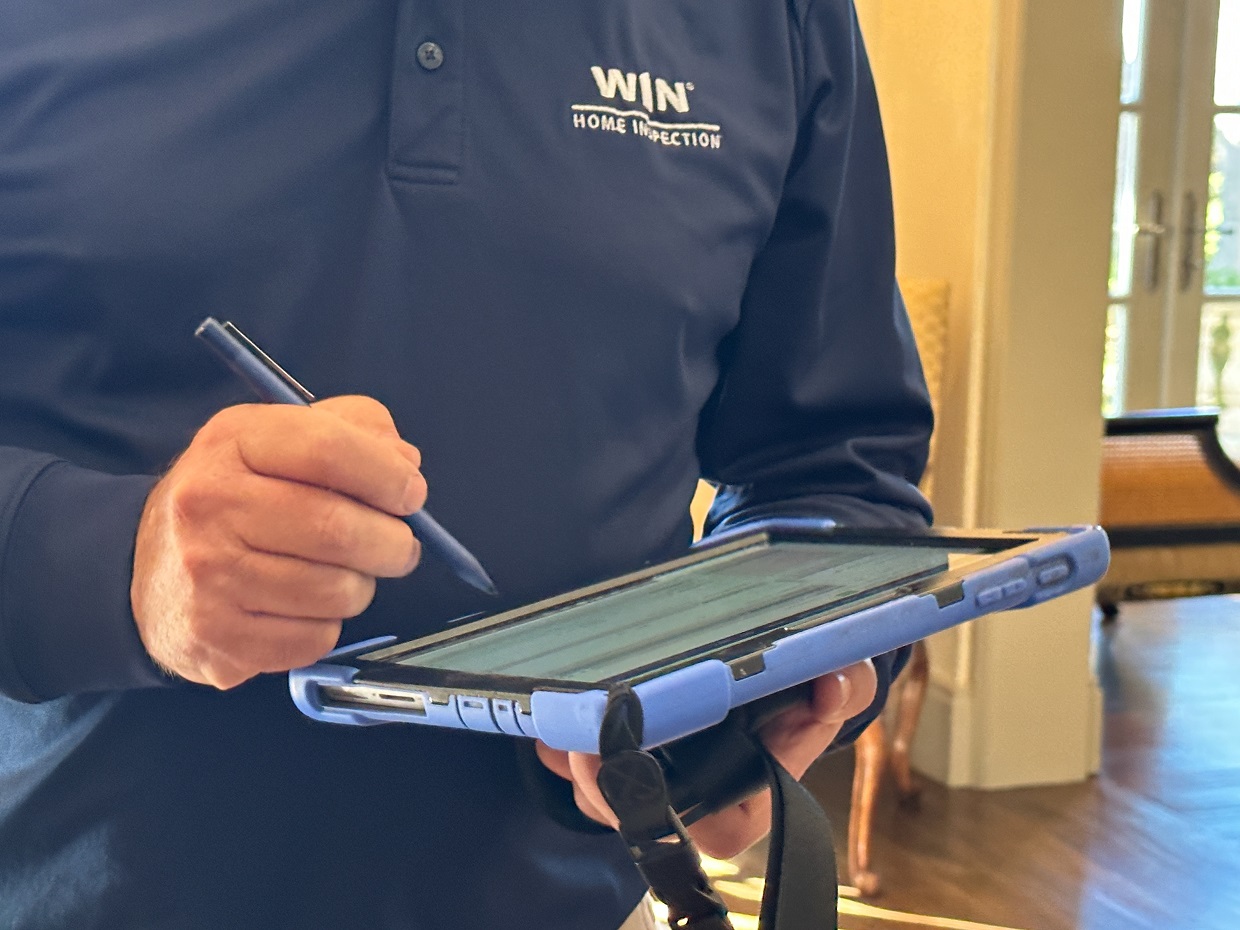
Home inspectors are the unsung heroes of real estate, ensuring that homes are safe, sound, and worth the investment. As an aspiring home inspector, you’re preparing to take on a huge responsibility: maintaining the trust of members in your community by delivering quality and accuracy. While the home inspection tools you carry allow you to detect issues that are invisible to the naked eye, they are just the start of your home inspection journey. With omni-channel consultative marketing that spans across the digital and physical mediums, you can use the tools at your disposal to deliver quality services to a much broader audience.
An inspector without the proper tools is like a painter without a brush — lacking the means to complete the job effectively. Equip yourself with the right instruments, and you will stand out as a beacon of knowledge and trust for every home buyer who seeks your expertise.
Let WIN Home Inspection, the leading franchise in the industry, walk you through the must-haves for your home inspection toolkit, ensuring that you step into any home ready to assess, inspect, and inform with ease and precision.
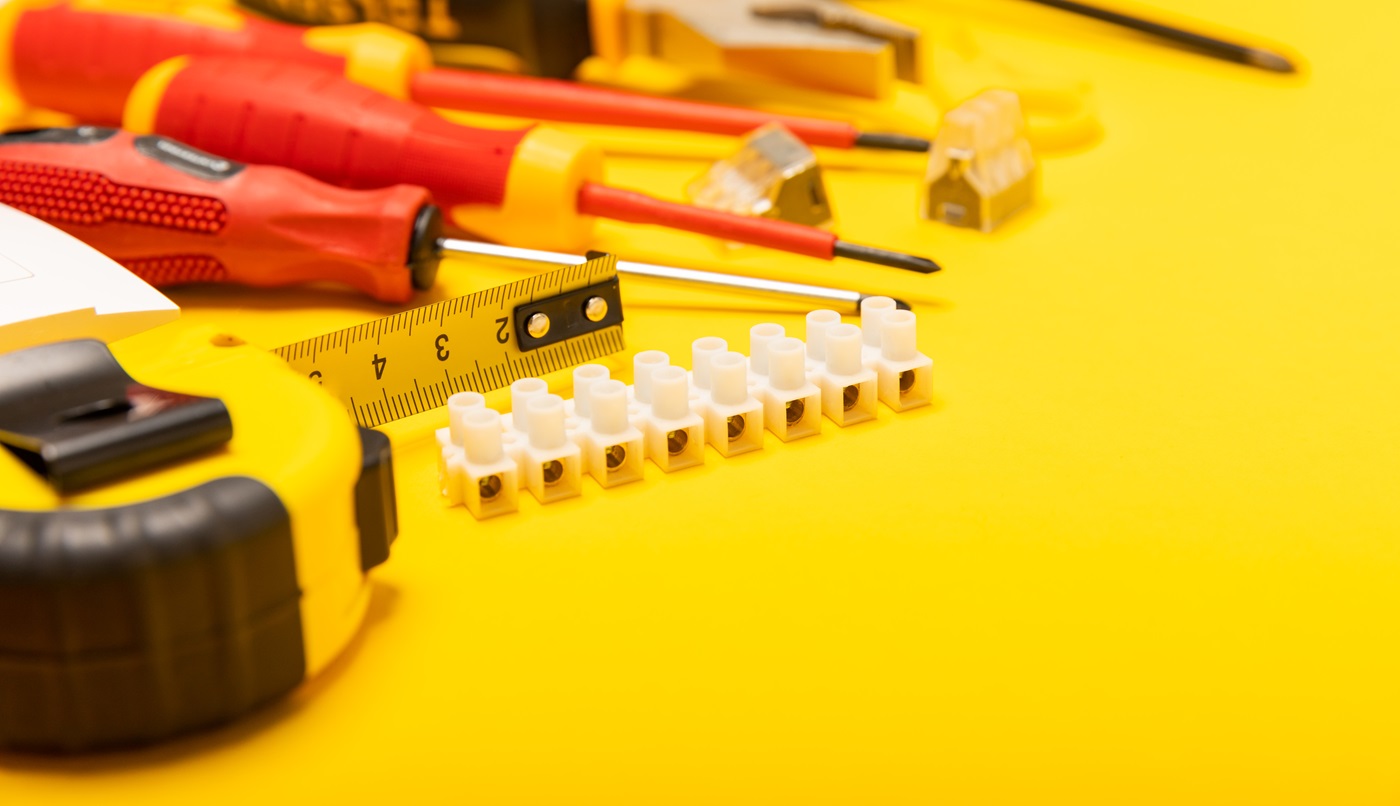
In the realm of home inspection, there are a few hand tools that are indispensable. Each one serves a specific purpose and helps in the accurate assessment of a property. Here’s a closer look at the essential hand tools that should be in every home inspector’s toolkit.
A high-quality flashlight, preferably LED, is the home inspector’s best friend. The brighter, more durable and longer battery life – the better. A strong flashlight is vital for illuminating dark crawl spaces, basements, attics, and electrical panels, and it ensures safety during an inspection.
A comprehensive screwdriver set with various sizes and heads is an essential part of an inspector’s toolkit. It’s used for removing electrical panel covers to inspect wiring, open access panels and check for loosen or unstable fixtures. Screwdrivers with insulated handles are particularly beneficial for additional safety.
A durable tape measure is necessary to make quick measurements in the home where you suspect alignment issues. A 25-foot tape measure is typically sufficient for most home inspections.
A utility knife is a versatile tool in the inspector’s kit. It’s useful for everything from accessing an attic to cutting paint around an electrical panel for access. A utility knife with a locking blade ensures safety and efficiency when tackling various inspection tasks.
To accurately measure the air temperature in various parts of the home, a penetration probe thermometer is necessary for full HVAC systems. A laser thermometer is better for quick temperature checks. These types of thermometers quickly respond to temperature changes.
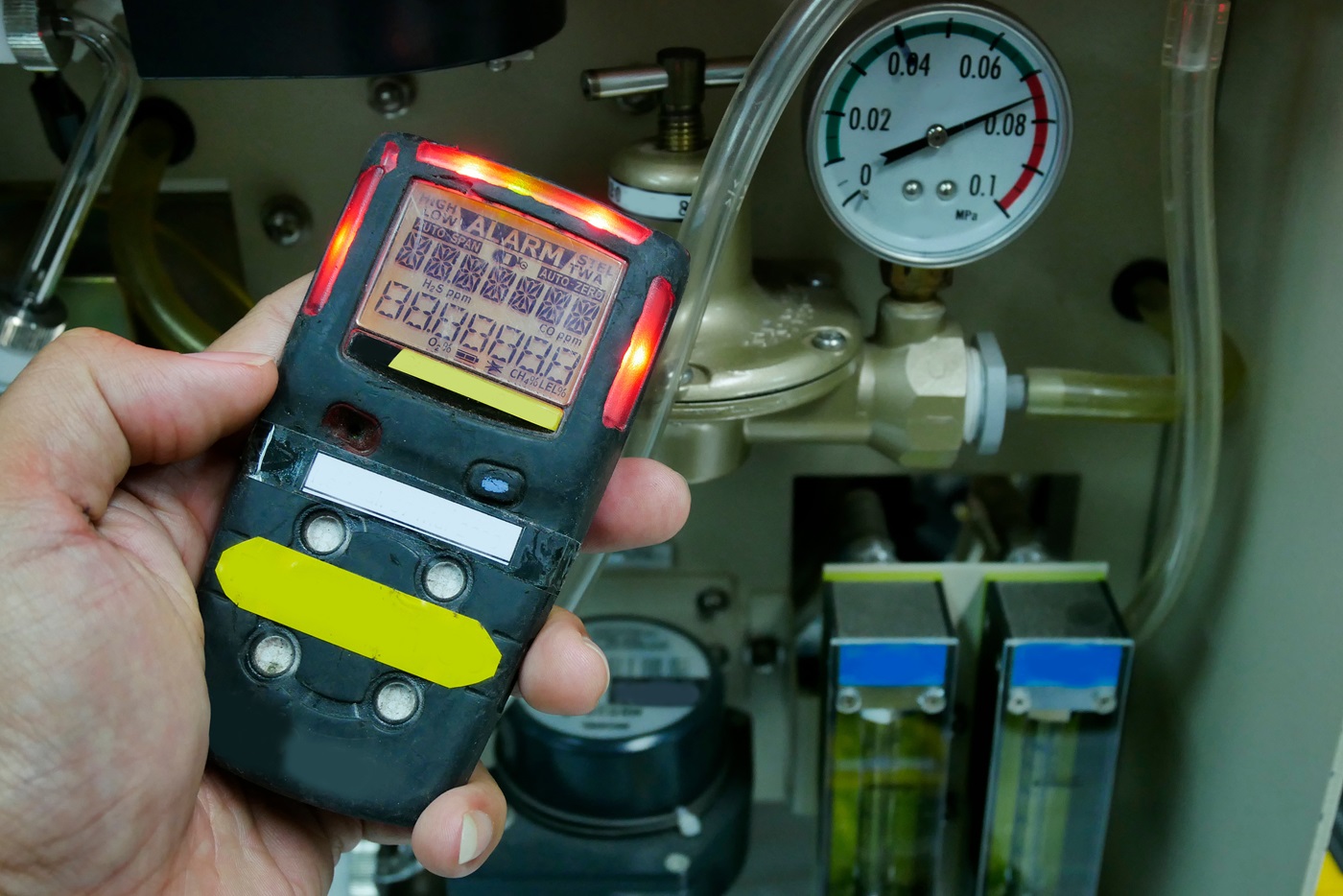
Beyond the basic hand tools, home inspectors need specialized diagnostic and testing equipment to delve into a home’s more complex systems. This equipment allows for non-invasive testing. Here’s an overview of the diagnostic tools that are crucial for a comprehensive home inspection.
A moisture meter is critical for detecting the presence of moisture within walls, floors and ceilings that can indicate leaks or condensation issues. They come in two types: pin-type meters, which measure moisture content at various depths, and pin–less meters, which use electromagnetic signals to detect moisture without causing damage to surfaces. You can also detect moisture and spots of energy inefficiency using infrared scanning technology. High moisture readings can be a precursor to mold, wood rot and other water-related damages.
For homes where gas is a fuel source, inspectors must have a gas leak detector on hand. These detectors can identify potentially dangerous leaks from gas lines, fittings, appliances, and other sources. They are designed to be sensitive and accurate, allowing the inspector to pinpoint leaks quickly and reliably.
An infrared scanner, or thermal imaging scanner, is used to detect temperature differences in various areas of the home that are not visible to the naked eye. It’s particularly useful for identifying missing insulation, air leaks around windows and doors, overheating electrical components, and other hidden anomalies. This tool allows the inspector to effectively assess the thermal performance of the home.
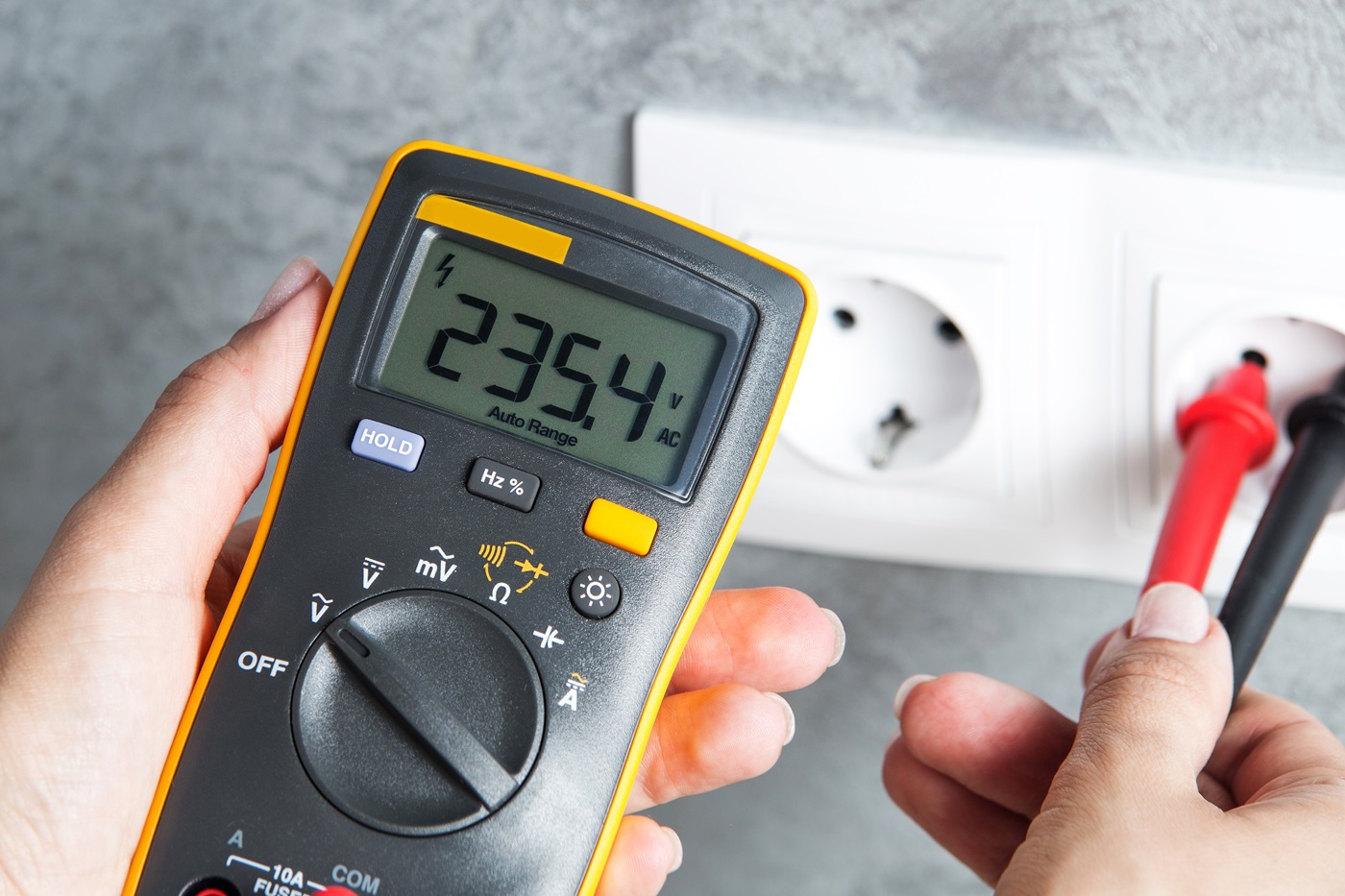
When it comes to inspecting a home’s electrical system, safety and precision are paramount. Electrical issues can present serious hazards, including fire risks and potential electrocution. Therefore, it’s essential for home inspectors to be equipped with specialized tools designed to test and diagnose electrical components without compromising their safety. Here are the key electrical inspection tools every inspector should carry.
A voltage tester is an essential tool for any home inspector. It is used to verify the presence or absence of voltage in electrical wires, outlets, and circuits throughout the home. Non-contact voltage testers are popular for their ease of use and safety, as they can detect voltage through insulation, meaning there’s no need to touch bare wires.
An outlet tester is a simple plug-in device that checks for faulty wiring in electrical receptacles. It can quickly tell an inspector if an outlet is working properly or if it has a common wiring problem like an open ground, open hot, open neutral, hot/ground reverse, or hot/neutral reverse. This tool is indispensable for ensuring the safety and functionality of the electrical outlets in a home.
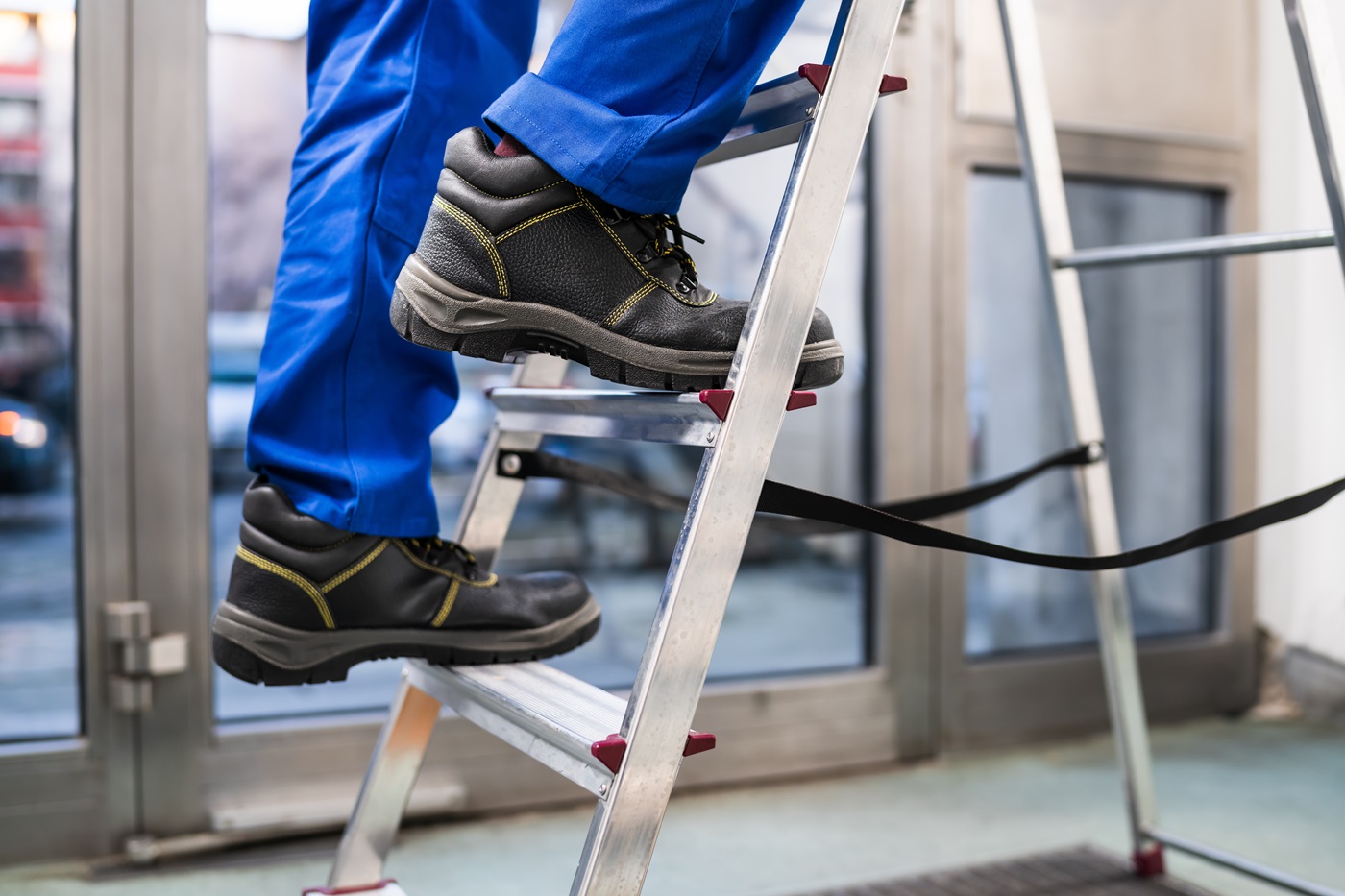
Inspecting the structural integrity of a home, including its foundation, is a critical aspect of a home inspection. Structural issues can be among the most costly to repair and are fundamental to the safety and longevity of the property. Home inspectors utilize specific tools to assess the levelness, stability, and overall structural condition of a home.
A level is an indispensable tool for checking the evenness and alignment of floors, walls, and other structural components. A standard 4-foot level can be used in most cases. By spot checking surfaces for plumb and level, the inspector can detect potential structural movement or settling that may warrant further investigation.
A sturdy, extendable ladder is crucial for any home inspector. It allows for safe access to high places such as roofs, upper sections of walls, and attic spaces, which must be inspected for structural soundness, water damage, and other defects. An adjustable ladder (Little Giant Type) or telescoping ladder can extend to varying lengths and use cases. Both are a versatile choice for inspectors who work on different types of properties.
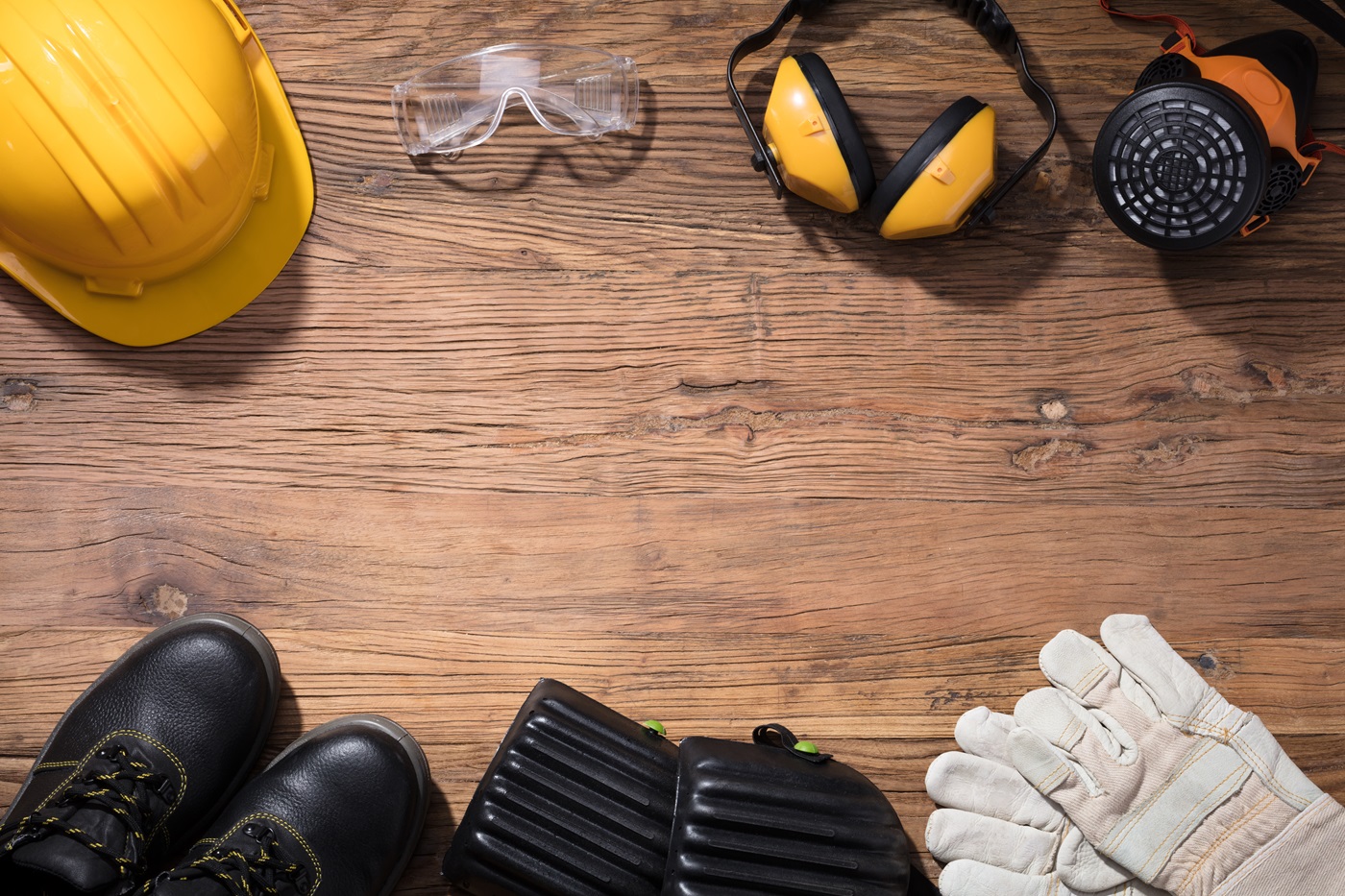
Home inspectors often find themselves in environments where safety cannot be taken for granted. From crawling through tight spaces to walking on steep roofs, the potential for injury is present. Therefore, it’s not just about the tools for assessment; it’s also about the personal protective equipment (PPE) that keeps inspectors safe on the job. Here are the essential items of safety gear that every home inspector should have.
Safety glasses are a must-have to protect against eye injuries from flying debris, dust, and insulation. Eye injury risk is high during home inspections, especially when inspecting areas like attics or basements, or when dealing with old and potentially brittle materials. Safety glasses should meet the national standards for impact resistance and provide both front and side protection.
A pair of heavy-duty safety gloves can protect against cuts, scrapes, and punctures from nails, screws, and sharp edges during an inspection. Similarly, sturdy safety shoes with slip-resistant and puncture-proof soles are necessary for stability and foot protection when navigating construction debris, unfinished floors or steep roofs.
A respirator is an important piece of PPE, especially when inspecting areas that may have mold, asbestos, or other hazardous airborne particles. Unlike simple dust masks or half-face respirators, a full-face respirator covers the entire face, providing both respiratory and eye protection, which is essential in potentially contaminated environments.
Knee pads protect your legs when you are crawling through tight spaces and protect you from sharp objects as you move through compromised areas.
Keep you clean and protect you when crawling through tight spaces. They also keep you from spreading dirt or debris and even harmful substances by allowing you to keep them separate in your vehicle and clean them separately when you get home.
The job of a home inspector not only involves the evaluation and inspection of properties, but also entails leaving the inspected areas as clean as or cleaner than they were found. Respect for homeowners’ property is paramount, and utilizing the right clean-up tools and equipment is part of maintaining that respect. Here’s what inspectors need to efficiently manage their workspace during and after an inspection.
Organization is key to a smooth inspection process, and a sturdy tool bag or tool belt is essential for keeping tools secure and within reach. This not only aids in efficiency, but also prevents the misplacement of tools. An inspector’s tool bag is their mobile workstation, which helps them transition quickly from one task to another while minimizing cleanup time.
Carrying a set of towels is a proactive approach to managing messes. Whether it’s wiping down a surface after testing for leaks or drying hands to prevent stains on walls or fixtures, towels are indispensable. They’re also handy for laying out tools and protecting surfaces from scratches or other damage.
Tarps and shoe covers are critical for keeping floors clean. They’re especially useful when entering areas of the home with light-colored carpets or delicate flooring. By using tarps, inspectors can avoid leaving tracks or stains, showing consideration for the homeowner’s property and mitigating any potential cleanup after the inspection process.

While the essentials cover most inspection needs, there are additional tools that can significantly enhance the efficiency, thoroughness, and quality of a home inspection. These “nice-to-have” tools may not be necessary for every inspector, but they can provide a competitive edge and offer a more comprehensive service to clients.
Drones are becoming increasingly popular for roof inspections, especially for steep, high or otherwise inaccessible roofs. They can take high-resolution images and videos of roofs, gutters, chimneys and other exterior features without risking personal safety. Drones offer a safe and detailed way to inspect areas of a property that might otherwise be overlooked.
A headlamp is a very useful tool that provides hands-free illumination. This tool is particularly helpful for inspecting dark spaces such as crawlspaces, attics or wiring in electrical panels. With a headlamp, both hands can be used for the inspection while still getting the light you need.
For inspectors who frequently walk on roofs, specialized roof-walking boots can provide better traction, stability and safety. These boots are designed to offer protection against slips and falls, which are common hazards during roof inspections. However, WIN recommends utilizing drone roof technologies to inspect roofs and circumvent ladder usage.
For times when it’s not possible or safe to climb onto a roof, binoculars or a pole camera can be a great asset. They allow inspectors to stay on the ground while still getting a closer look at roof tiles, flashings and other components. They can also be handy for inspecting upper-story windows without a ladder.
In today’s digital age, a tablet or laptop is an invaluable tool for inspectors. These devices can be used for on-site report writing, looking up details and showing clients issues in real-time with photos and notes. The convenience of immediately producing electronic reports can improve productivity and professionalism.
From moisture meters to thermal imaging cameras, staying organized is key to a successful inspection. Self-storage units, particularly smaller ones, can be a valuable asset for home inspectors needing extra space for equipment or documentation. Selecting the right tools is crucial for conducting thorough and reliable home inspections. The appropriate use of these tools not only ensures a comprehensive assessment of a property’s condition, but also enhances the safety of the inspector and underscores the professionalism of the service provided. From essential hand tools to advanced technological aids, each plays a specific role in delivering a detailed and accurate home inspection report.
However, accurate and precise inspection tools are just the starting elements of your kit. WIN Home Inspection offers comprehensive, omni-channel marketing for inspectors as they understand the basis of business growth lies in brand presentation. Whether grassroots marketing using flyers and door hangers, paid marketing using Meta and Google advertisements or public relations spotlights is the most cost-effective way forward for you and your brand, WIN has decades of experience in the industry and understands what it takes to bring your business to the top.
Aspiring home inspectors should recognize that their expertise, combined with a robust toolkit, forms the foundation of a successful career in home inspection. But aligning with a strong and supportive franchise can be a game-changer in this industry.

Joining a reputable franchise like WIN Home Inspection offers numerous benefits. By joining WIN, you’re becoming part of the #1 ranked home inspection franchise by Entrepreneur, recognized for our outstanding focus on the latest tools and technologies. WIN stands out with its commitment to providing free in-house training, ensuring that you’re equipped not just with state-of-the-art tools, but with knowledge too. Their end-to-end marketing platform arms franchise owners with the resources needed to attract and retain clients.
Backed by 30+ years of industry legacy, WIN integrates innovative technology with personalized support, fostering an environment where each franchisee can thrive. By leveraging WIN’s extensive support team, new inspectors are never alone, benefiting from a wealth of experience and shared knowledge.
In conclusion, while the arsenal of tools equips home inspectors to perform at their best, joining forces with WIN Home Inspection can amplify your capabilities and help establish your foothold in the industry. It’s not just about being a part of a franchise — it’s about being part of the best, with a commitment to excellence and community that makes WIN the premier choice for home inspectors across the United States.